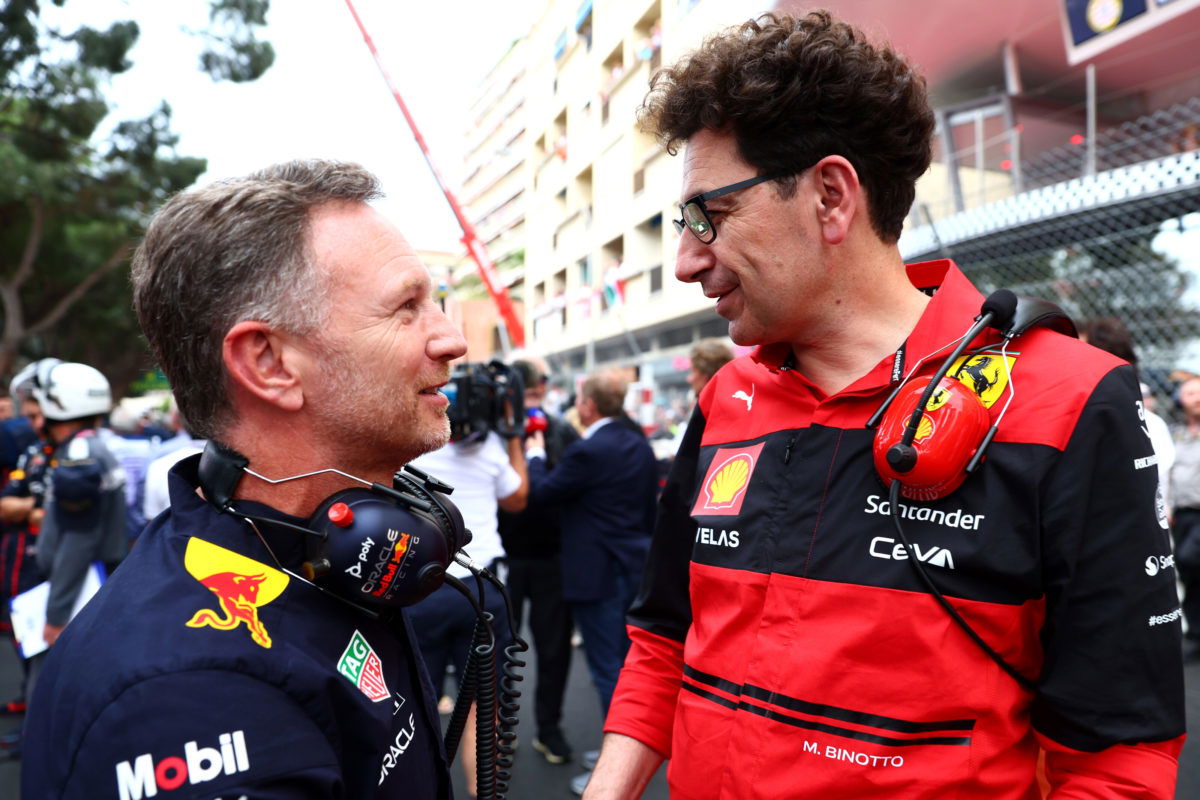

A number of Formula 1’s leading teams are pushing for an increase on this year’s cost cap, citing inflation among other factors placing their finances under pressure.
Teams this year must operate to a cap of $140 million, a $5 million drop from last year, and a figure set to decrease further to $135 million for 2023.
There are exceptions to that total, such as salaries for key personnel, marketing, and other non-performance related items.
Ostensibly though it defines the maximum figure a team can spend to go racing each season and is some way south of what the likes of Ferrari, Red Bull, and Mercedes had been pouring into their programmes.
They are now arguing that rising costs globally on logistics and energy see them at risk of breaching the cap and are thus looking for it to be increased.
Should it not, Red Bull’s Christian Horner has suggested his team may be forced to miss races.
“What I was trying to point out last weekend, when I was asked the question, was it would be the equivalent of we would have to miss numerous races to get anywhere near getting costs under the cap,” he explained.
“Certainly all the major teams are going to breach that 140 count this year.”
Like Horner, Mattia Binotto also believes there’s no way to remain under the cost cap as it stands.
“I think that there will be no way for us simply to stay below [the cost cap],” he said.
“I’m pretty sure at some stage, we will go over in the regulations.
“There is a threshold, which is at five percent – if you do not exceed the five percent on top of what’s the budget cap’s threshold it will be considered a minor breach.
“What’s a minor breach in cost of force majeure?
“But I don’t think there is any way for us, and for many teams, simply to stay within [the cost cap].”
Horner suggested that, without understanding the potential penalties, it could also encourage teams to play a “game of chicken” with the regulations.
“As Mattia pointed out, there’s a five percent threshold for a minor breach,” he noted.
“What is the penalty for a minor breach?
“What we don’t want to do is end up playing a game of chicken as to say, does he go to 4.9 over? Do we go to 4.7 over?
“That could be one upgrade that could be the differentiating factor of this world championship.”
In Horner’s mind, two things need to happen.
The first is to raise the budget cap sufficiently such that teams are no longer at risk of breaching it.
A failure to do so, he argues, would render the cost cap regulations worthless as they are set at an unreasonably low level.
The second is clear definitions on what the penalties are for breaching the cost cap, allowing the team to make an informed decision as to whether it allows itself to overspend.
“When we sat down and agreed those figures, nobody could have even contemplated world events that are driving inflation,” Horner argued.
“We don’t even know what that inflation is going to be in the second half of the year.
“We’re all seeing the cost of living rising, we’re seeing utility bills going through the roof. Where is that going to go in the next six months?
“So we do need the FIA to take early action on this because we’re coming up to the mid-year point. There’s only so much you can do, and I think we have a responsibility to our employees as well.
“We reorganised, we shaped, we had to say goodbye to many long-time employees through redundancies last year to get down to a point that was consistent with the cap before inflation came along.
“And I don’t think it’s right that the pressure should be put on mass redundancies within the sport, so I think, hopefully, common sense will prevail.
“It’s a force majeure situation. It’s a situation obviously that none of us could have foreseen that have driven these costs up and, pragmatically, we just need to come to a commonsense solution.”





















Discussion about this post